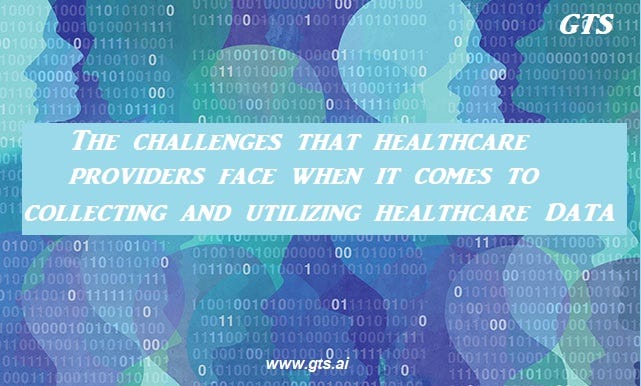The challenges that healthcare providers face when it comes to collecting and utilizing healthcare data
Healthcare data plays a crucial role in the delivery of quality patient care. It helps healthcare providers make informed decisions, monitor the progress of patients, and improve patient outcomes. However, collecting and utilizing healthcare data is a complex and challenging process that presents many obstacles for healthcare providers.

In this blog, we will explore the major challenges that healthcare providers face when it comes to collecting and utilizing healthcare data.
- Data Silos: One of the biggest challenges in healthcare data collection is the existence of multiple data silos. Different departments within a hospital or healthcare organization may use different electronic health records (EHR) systems, leading to fragmented data that is difficult to access and integrate. This can result in gaps in the patient’s medical history, which can be dangerous when making clinical decisions.
For example, a patient may receive care from multiple providers within a hospital, each with their own EHR system. The information from each EHR system may not be able to be easily shared with the other systems, leading to a fragmented patient medical history. This fragmentation can result in duplicated tests, treatments, and medications, and can cause delays in care delivery.
To overcome the challenge of data silos, healthcare providers need to implement solutions that allow for the integration and sharing of data across different EHR systems. This can be achieved through the use of a centralized data repository, where all patient data is stored in a single location, making it easier for healthcare providers to access and share the information they need.
2. Data Quality: Ensuring the quality of healthcare data is a major challenge. Healthcare data is often incomplete, outdated, or inaccurate, which can lead to incorrect diagnoses and treatments. In addition, patients may not accurately recall their medical history or provide false information, further complicating the issue.
To improve the quality of healthcare data, healthcare providers need to implement systems and processes that ensure the accuracy and completeness of the information they collect. This can include the use of electronic data capture tools, such as electronic forms, to reduce the risk of human error in data collection. In addition, healthcare providers can also implement data quality checks and audits to ensure the accuracy of the information they have collected.
3. Data Security: The protection of patient data is a critical issue in healthcare. With the increasing amount of healthcare data being collected and stored electronically, there is a growing concern about data security and privacy. Hackers and cybercriminals are constantly finding new ways to access sensitive patient information, making data security a top priority for healthcare providers.
To protect patient data, healthcare providers need to implement robust security measures, including firewalls, encryption, and access controls. In addition, healthcare providers need to ensure that all employees are trained on the importance of data security and how to properly handle patient information. Regular security audits and penetration testing can also help identify and address any potential vulnerabilities in the system.
4. Data Interoperability: Interoperability is a major challenge in the healthcare industry. With different EHR systems and data silos, it is difficult for healthcare providers to share and access patient information in a timely and efficient manner. This can lead to inefficiencies and delays in the delivery of care, putting patients at risk.
To address the issue of interoperability, healthcare providers need to adopt standards for data exchange that allow for the seamless sharing of information across different EHR systems. This can be achieved through the use of health information exchange (HIE) platforms, which enable healthcare providers to securely exchange patient data with one another.
5. Data Analysis: Collecting healthcare data is only the first step. To be useful, the data must be analyzed and interpreted correctly. This requires the expertise of data scientists and healthcare professionals who can identify trends, patterns, and relationships in the data. However, there is a shortage of skilled professionals in this area, making it difficult for healthcare providers to make the most of their data.
In conclusion, collecting and utilizing healthcare data is a complex and challenging process. From data silos and quality issues to security concerns and data analysis, healthcare providers face a range of obstacles when trying to make the most of their data. Nevertheless, by addressing these challenges, healthcare providers can improve the quality of patient care and achieve better outcomes.
Healthcare Datasets and GTS
Collecting Healthcare Datasets in ML is not easy. There are a ton of things to consider. That’s why we at Global Technology Solutions are known to provide quality medical data collection that is useful in making healthcare models. Our process is fully customized and our name is appreciated among big industries, and players.



Comments
Post a Comment